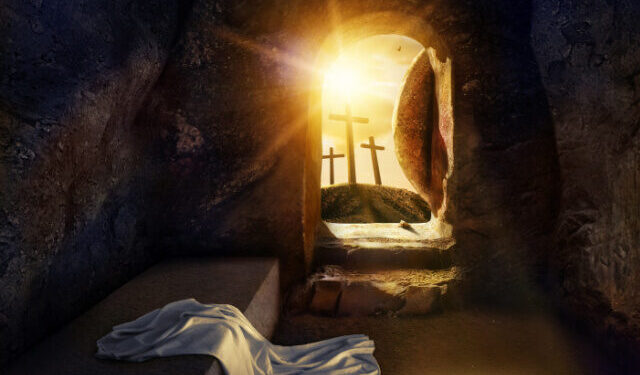Every year on Easter Sunday, Christians around the globe joyfully proclaim the words: “He is risen!” For many, it’s more than just a greeting—it’s a declaration of victory, a celebration of the most important moment in human history: the resurrection of Jesus Christ.
But what does that phrase really mean? And why do Christians put so much significance on an old rugged cross and an empty tomb?
Let’s take a moment to step back and reflect on the real story behind Easter—one that’s filled with pain, purpose, and a promise that still echoes in our hearts today.
A Weekend That Changed the World
Nearly 2,000 years ago, Jesus of Nazareth was crucified—a brutal and humiliating death on a Roman cross. Christians around the world remember this sacrifice every Good Friday. But what happened three days later turned that dark moment into the brightest hope mankind has ever known.
The Gospel of Luke gives us a powerful account of what happened that Sunday morning:
“They found the stone rolled away from the tomb, but when they entered, they did not find the body of the Lord Jesus. … The men said to them, ‘Why do you look for the living among the dead? He is not here; he has risen!’” (Luke 24:2–6)
Those words—“He has risen”—weren’t just news. They were a fulfillment of everything Jesus had told His followers would happen. He had predicted it multiple times, saying plainly that He would be rejected, suffer, die, and rise again on the third day.
In Mark 8:31, Jesus clearly explained:
“The Son of Man must suffer many things and be rejected by the elders, the chief priests and the teachers of the law, and that he must be killed and after three days rise again.”
When Peter, one of His closest disciples, rebuked Him for saying such things, Jesus responded sharply:
“Get behind me, Satan! You do not have in mind the concerns of God, but merely human concerns.”
Jesus knew exactly what He was walking into—and why.
Pain With a Purpose
Before His crucifixion, Jesus prayed in anguish on the Mount of Olives. Knowing the torture and betrayal ahead, He still chose obedience:
“Father, if you are willing, take this cup from me; yet not my will, but yours be done.” (Luke 22:42)
Scripture says His sweat was “like drops of blood.” He was fully human, feeling every ounce of dread. But He went to the cross anyway.
Why? Because He wasn’t dying for His own sins. He was dying for ours.
The Apostle Peter reminds us of this in 1 Peter 2:24:
“He himself bore our sins in his body on the cross, so that we might die to sins and live for righteousness; ‘by his wounds you have been healed.’”
In that moment, Jesus took on the punishment we deserved. The righteous dying for the unrighteous. His death was a sacrifice, a payment of a debt we could never afford.
The Empty Tomb: A Promise Kept
But the story didn’t end at the cross. On the third day, Jesus rose.
He didn’t rise in spirit or myth. His body walked out of that tomb. He showed the scars in His hands and side. Death had no power over Him.
And because of that, it doesn’t have to have power over us either.
The Apostle Paul writes in Romans 6:8–9:
“Now if we have died with Christ, we believe that we will also live with him. We know that Christ, being raised from the dead, will never die again; death no longer has dominion over him.”
For those who trust in Jesus, the resurrection isn’t just a historical event—it’s a personal promise. Through His sacrifice, we are offered forgiveness, freedom from sin, and eternal life. All we must do is believe, repent, and receive that gift of grace.
Why Christians Rejoice
So yes, Easter is a celebration of resurrection—but it’s also a celebration of redemption.
We rejoice because Jesus did what no one else could: He paid the price for our rebellion, conquered death, and opened the way to eternal life.
“He is risen” isn’t just a phrase. It’s a lifeline.
It means that sin doesn’t win. That death doesn’t get the last word. That no matter how broken our world feels, hope is alive—and His name is Jesus.
So this Easter, when you hear those powerful words, let them sink in:
He is risen.
He is risen indeed.
And because He lives, we can live too.




















